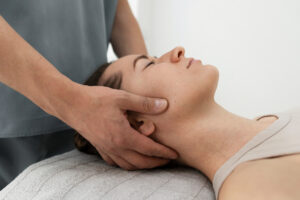Can dehydration cause tinnitus?
Many people notice that the ringing or buzzing in their ears worsens when they are not drinking enough water, raising questions about whether fluid balance directly impacts auditory health.
Tinnitus is a common condition often associated with hearing loss, noise exposure, or circulatory issues, but hydration may also play a significant role.
This article explores how dehydration could influence tinnitus, what biological mechanisms are involved, and how proper hydration and lifestyle choices can help.
Can Dehydration Cause Tinnitus?
Dehydration occurs when the body loses more fluids than it takes in, leading to reduced blood volume and altered electrolyte balance.
These changes can impair normal nerve signaling and reduce oxygen delivery to tissues, including those of the inner ear.
The inner ear relies on delicate fluid-filled structures to transmit sound signals to the brain.
When hydration is insufficient, these structures may not function properly, potentially leading to or worsening tinnitus.
While dehydration may not be the root cause of tinnitus for everyone, it can act as a trigger that intensifies symptoms in susceptible individuals.
Medical observations suggest that people who are already prone to tinnitus may notice stronger or more frequent ringing during periods of dehydration.
This makes hydration an important consideration in tinnitus management strategies.
The Role of Hydration in Ear and Brain Function
Hydration is vital for maintaining healthy circulation and nerve activity.
Adequate fluid intake ensures that blood flows smoothly, carrying oxygen and nutrients to all organs, including the auditory system.
Dehydration reduces blood volume, forcing the heart to work harder to pump oxygen, which can result in less blood reaching the inner ear.
Electrolytes such as sodium, potassium, and magnesium also rely on proper hydration to remain balanced.
These electrolytes regulate nerve impulses and muscle function, including those in the auditory pathways.
An imbalance caused by dehydration may interfere with the way auditory signals are processed, leading to phantom sounds.
For people with tinnitus, these disruptions can make symptoms more noticeable or persistent.
How Dehydration Affects Blood Flow and Ear Function
The cochlea, a spiral-shaped structure in the inner ear, requires constant blood flow to function optimally.
Dehydration limits this blood supply, creating stress on auditory cells.
Over time, repeated episodes of poor hydration may exacerbate damage to these sensitive structures.
In addition, dehydration can thicken the blood, reducing circulation efficiency.
This may impair oxygen delivery to the auditory system, further aggravating tinnitus.
Electrolyte Imbalances and Nerve Signaling
Nerve cells rely on electrical impulses to communicate with the brain.
Electrolytes such as potassium and sodium act as conductors for these signals.
Dehydration disrupts electrolyte balance, slowing or altering these impulses.
When the auditory nerve receives faulty signals, the brain may interpret them as sound, producing the ringing associated with tinnitus.
This explains why some people report worsening symptoms when they are dehydrated.
Other Factors That Can Trigger or Worsen Tinnitus
While dehydration can be a contributing factor, tinnitus is usually multifactorial.
Exposure to loud noise remains one of the leading causes of auditory damage and tinnitus.
Stress and anxiety can heighten awareness of tinnitus and make symptoms feel more intrusive.
High blood pressure and poor circulation are also linked to the condition.
Certain medications, such as some antibiotics, diuretics, and chemotherapy drugs, may trigger or worsen tinnitus.
Underlying conditions like temporomandibular joint (TMJ) disorders or ear infections can also contribute.
Understanding and managing these risk factors is essential for comprehensive tinnitus care.
Practical Tips to Stay Hydrated for Better Ear Health
Staying hydrated is one of the simplest ways to support ear and overall health.
Aim to drink water consistently throughout the day rather than consuming large amounts at once.
A common recommendation is to consume about eight 8-ounce glasses daily, but needs may vary based on activity level, climate, and health status.
Incorporate water-rich foods like cucumbers, watermelon, and oranges into your diet for extra hydration.
Limit intake of dehydrating substances such as alcohol and caffeine, which can worsen fluid loss.
Monitor hydration status by checking urine color, which should ideally be pale yellow.
Keeping a refillable water bottle on hand can help you maintain regular intake.
Natural Support for Tinnitus Relief
In addition to maintaining hydration, some people benefit from natural supplements designed to support ear health.
Sonus Complete is a 100% natural formula that combines vitamins, minerals, and plant extracts to reduce inflammation and support auditory function.
It contains ingredients like vitamin B12, garlic, hibiscus, olive leaf extract, and hawthorn berry, all known for their neuroprotective and circulatory benefits.
These compounds help improve blood flow to the auditory system, reduce oxidative stress, and support nerve function.
For individuals whose tinnitus is worsened by dehydration or poor circulation, Sonus Complete may provide complementary relief.
Its stimulant-free formulation makes it safe for daily use as part of a long-term wellness routine.
By supporting nerve health and circulation, it helps reduce the intensity of ringing sounds and promotes greater comfort.
Stay Hydrated and Support Your Ear Health Naturally
If you’ve ever asked yourself, can dehydration cause tinnitus, the answer is yes, at least as a contributing factor.
Ensuring proper hydration is a simple but powerful step toward managing ear health and reducing tinnitus flare-ups.
Combining hydration strategies with natural support can maximize relief and improve overall quality of life.
To learn more about Sonus Complete and how it may help you manage tinnitus symptoms, visit this page and explore natural solutions for clearer, calmer ears.









